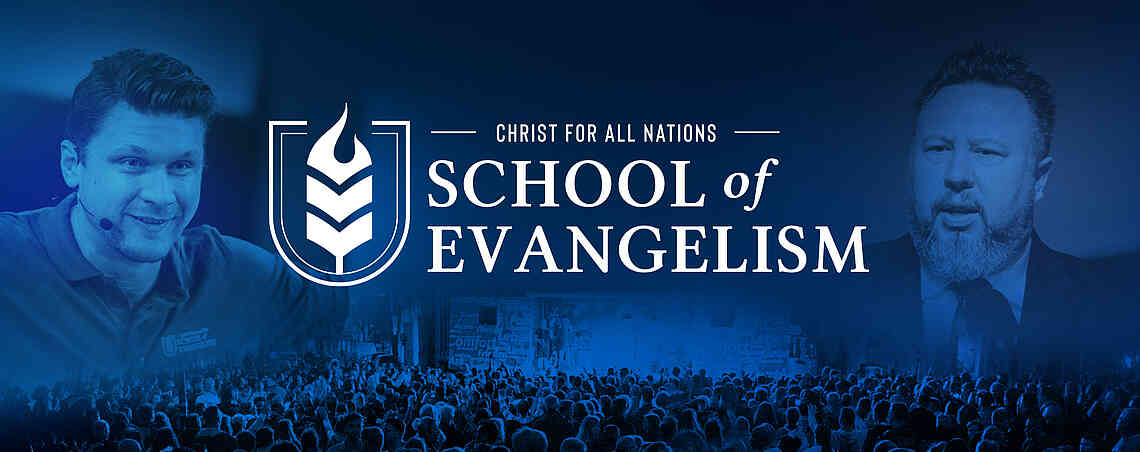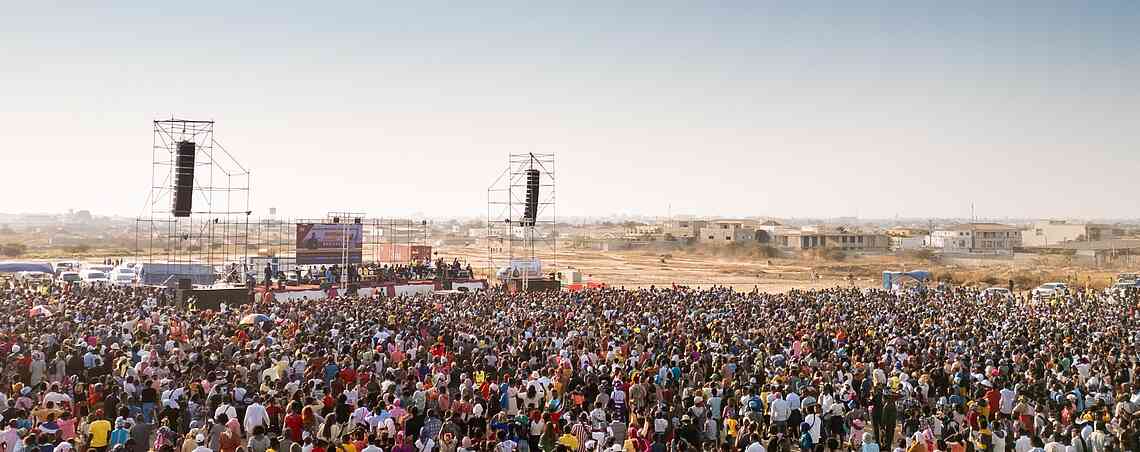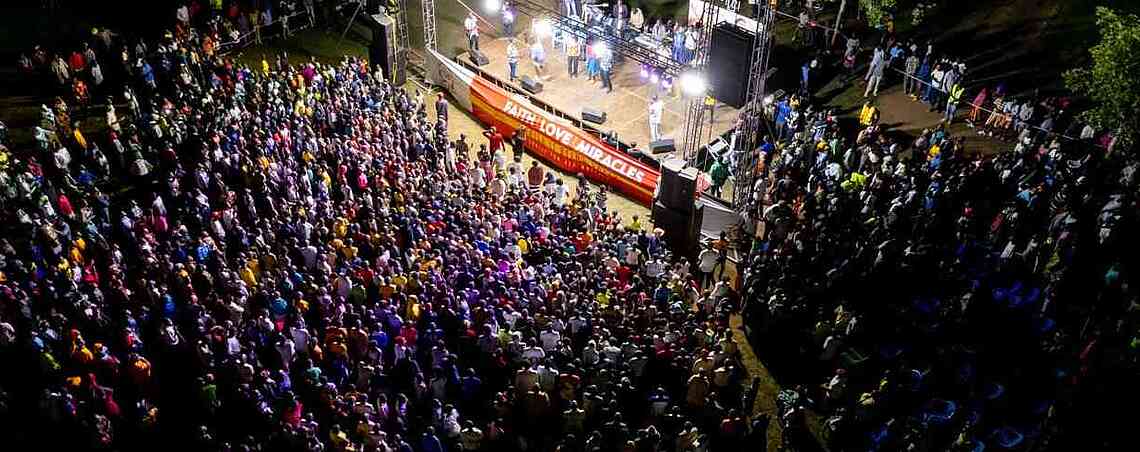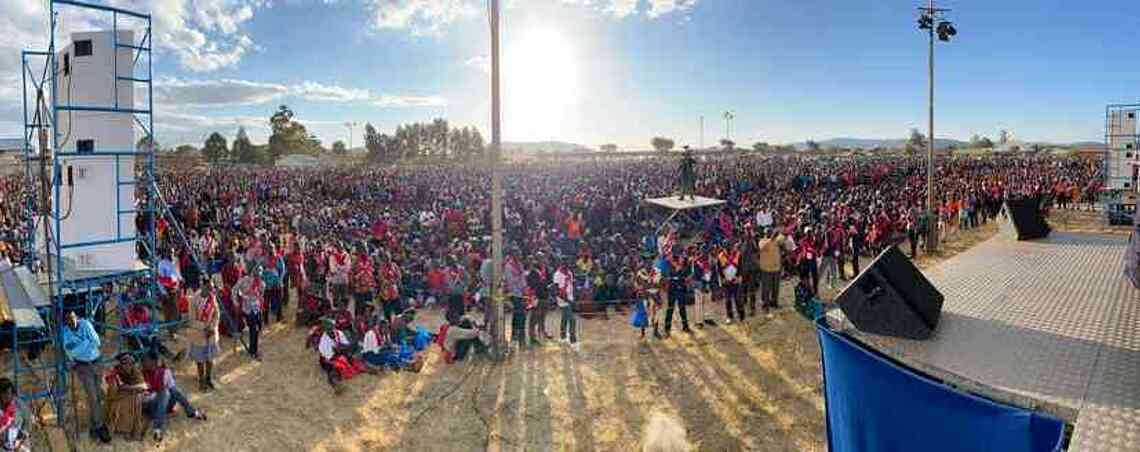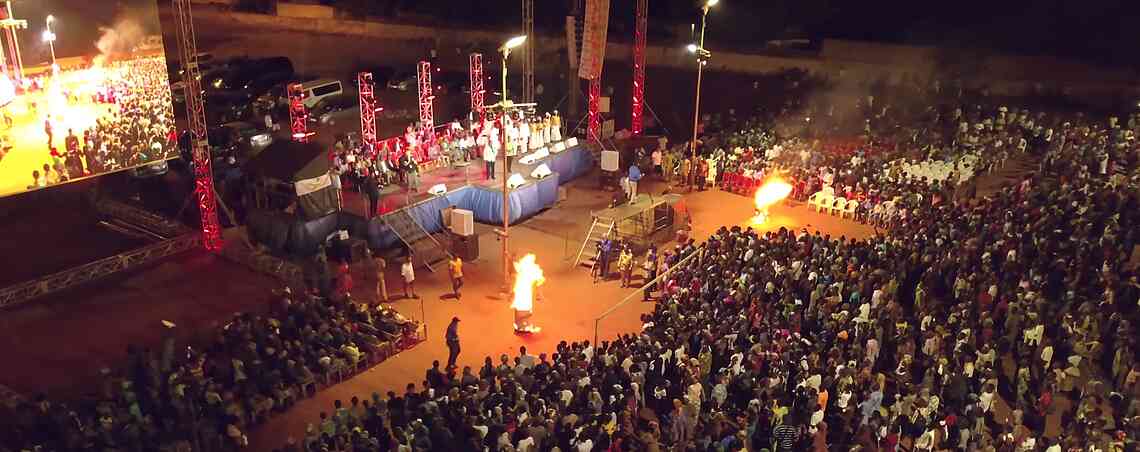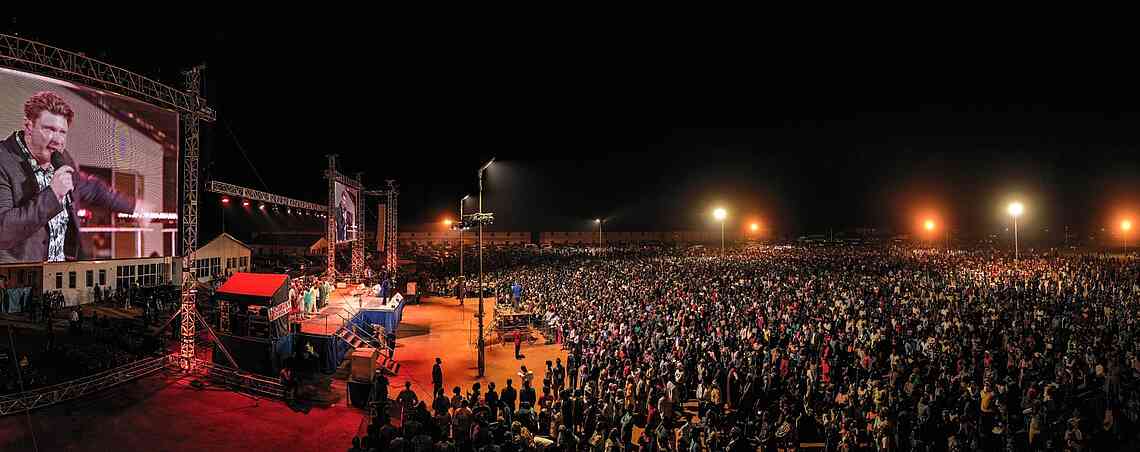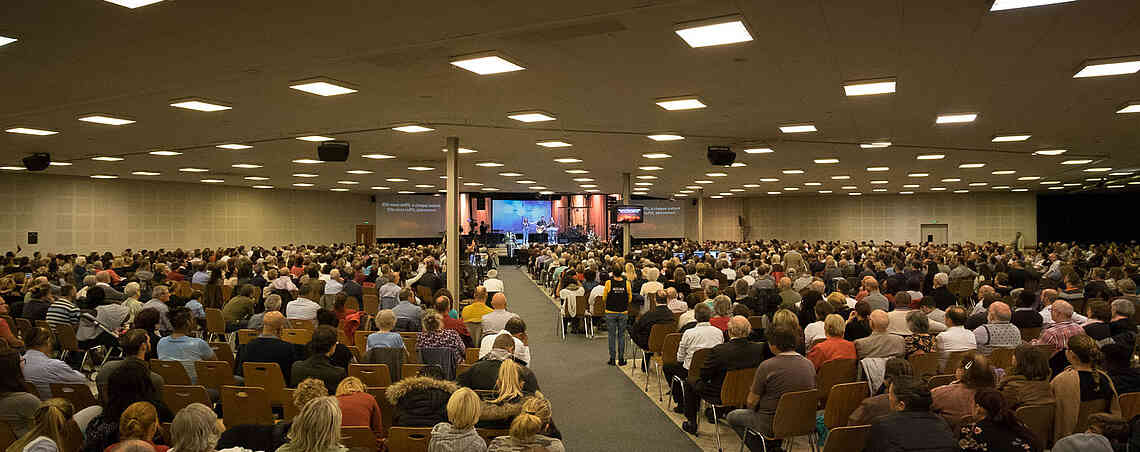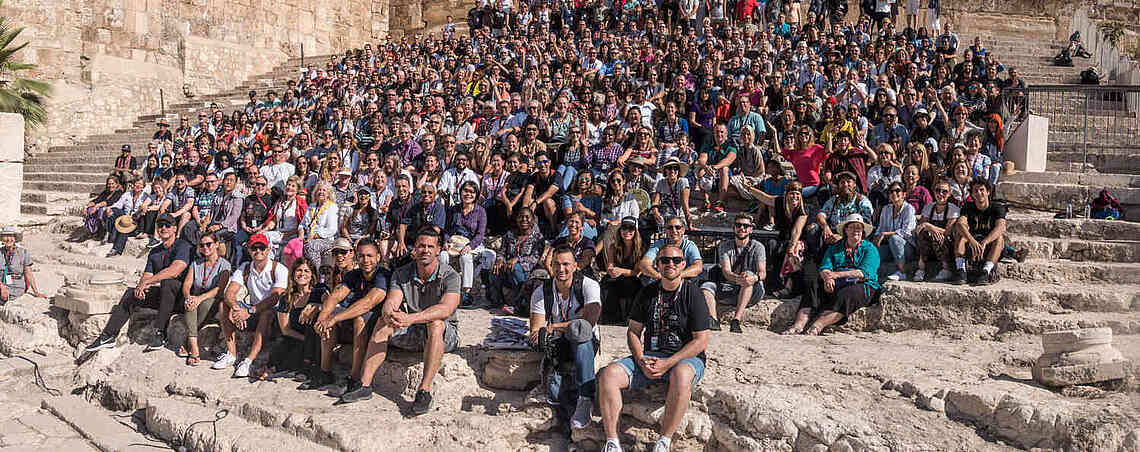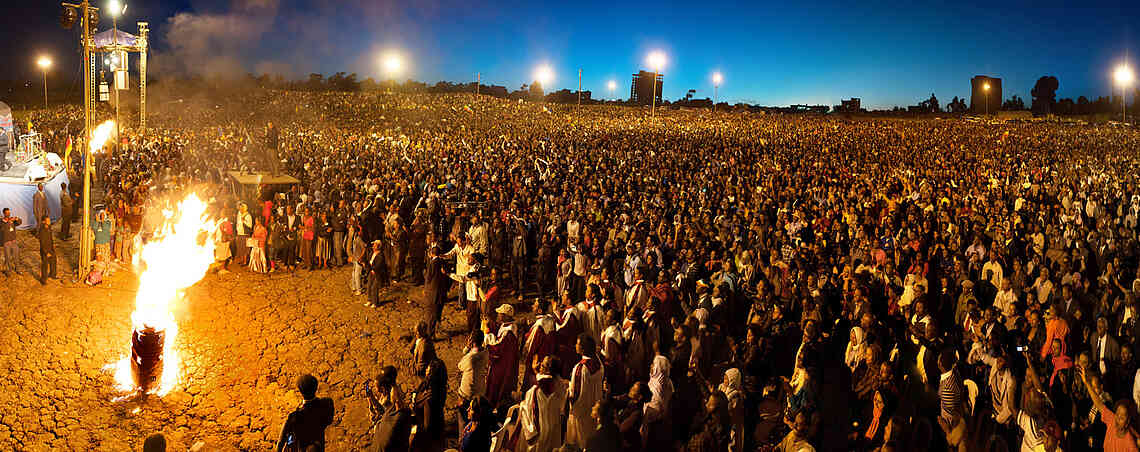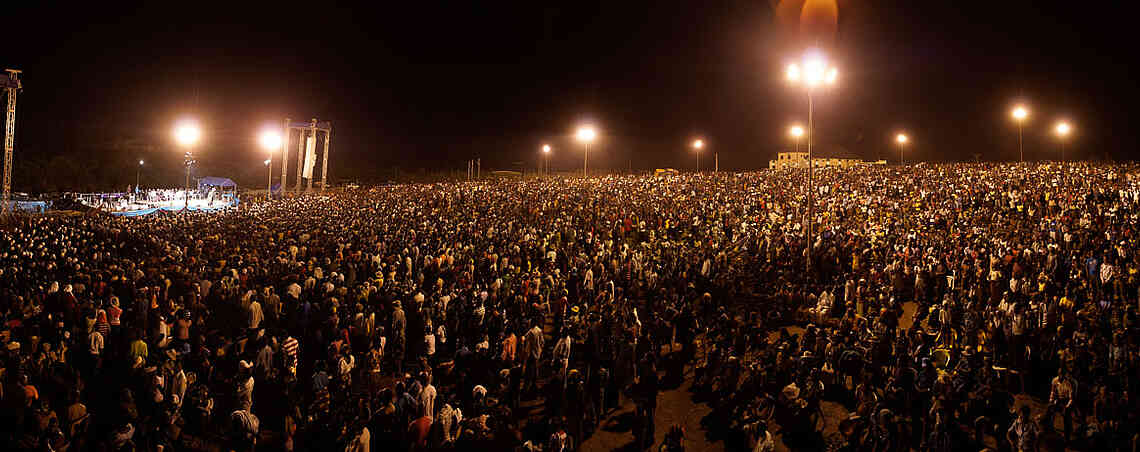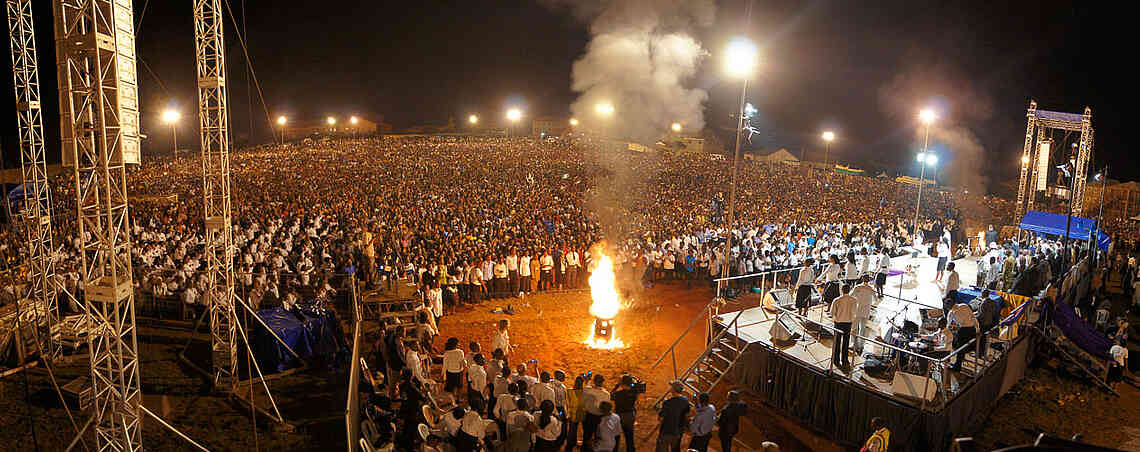
By Daniel Kolenda
Remember the Lord
In 2 Chronicles 16:1-3, we read: “In the thirty-sixth year of the reign of Asa, Baasha king of Israel came up against Judah and built Ramah, that he might let none go out or come in to Asa king of Judah. Then Asa brought silver and gold from the treasuries of the house of the Lord and of the king’s house, and sent to Ben-Hadad king of Syria, who dwelt in Damascus, saying, “Let there be a treaty between you and me, as there was between my father and your father. See, I have sent you silver and gold; come, break your treaty with Baasha king of Israel, so that he will withdraw from me.”
There was a period in the history of Israel, after Solomon died, when the kingdom was split into the North and South. The northern part of the kingdom split away and became Israel and the south became Judah. From that point on, whenever you read in the Old Testament about Israel, it's not referring to the whole people of God; it's talking about that northern kingdom. The northern kingdom quickly slipped into idolatry and fornication. They were very often under the judgment of God. The southern kingdom was known as Judah. Jerusalem continued to be their capital, and the kingly line of David continued on through Judah. So, what we have here in this passage is God talking to Israel; not the whole nation of Israel, just the northern kingdom of Israel.
In the context of what we’re reading here, Israel is the bad guy and Judah is the good guy. The king of Judah is a king by the name of Asa and the king of Israel is Baasha. Baasha is the bad king. He’s trying to conquer Asa, who is the good king. King Baasha fortifies Ramah, a city that lay on the border between those two regions. This was a strategic military move to prevent the people of Judah from being able to leave Judah. He fortifies this strategic city and then invades Judah, so he’s out for blood. This is very serious. King Asa gets scared, for good reason. He’s being invaded by a very powerful enemy.
Relying on his own wisdom
The way he reacts is very interesting. Rather than turning to the Lord and saying, “Lord, help us,” or “Lord, what should we do about this situation?” Asa relies on his own wisdom and intellect. He does something that seems very strategic and intelligent in the flesh, but as you’ll see in a moment, the Lord was not pleased. He reached out to the king of Damascus, Ben-Hadad. He said to Ben-Hadad, “I will pay you big bucks if you come and help me.” Ben-Hadad agreed to this. The Bible tells us that Asa goes and gets the silver and gold from the treasuries of the temple in Jerusalem and takes the silver and gold from the treasuries of the palace. He uses the wealth of Judah to pay off a gentile king to come to his aid against the northern kingdom of Israel. You’ve got to imagine it’s like two brothers fighting. One brother gets scared, so he turns to somebody outside the family, and that guy comes in, but now they’ve introduced an even worse enemy into the mix.
In the short term, if you read the next few verses, it looks like this has been a very wise decision. It puts Judah in a good position strategically, but again, the Lord was not pleased. Here’s what happens: Hanani the seer, a prophet, comes to Asa and tells him, “Listen to this: Because you have put your trust in the king of Aram instead of in the Lord your God, you missed your chance to destroy the army of the king of Aram. Don’t you remember what happened to the Ethiopians and the Libyans and their vast army with all their chariots and charioteers? At the time when you relied on the Lord, He handed them over to you. The eyes of the Lord search to and fro throughout the whole earth in order to strengthen those whose hearts are fully committed to Him. What a fool you have been. From now on, you will be at war.”
God is looking for people who will depend on Him
Asa became so angry with Hanani the prophet for saying these things that he threw him into prison and put him into stocks. At that time, Asa also began to oppress some of his people. What’s interesting is that the verse we all know know – the eyes of the Lord running to and fro throughout the whole earth – Is not just a generic statement about God wanting to help His people. It’s in the context of a king who found himself in a difficult situation. Rather than turning to the Lord, he depended on the arm of the flesh, which offended the Lord. As the prophet said, what God is looking for is people who will depend upon Him, and if they do, He will help them and be glorified through their lives.
An open door for a miracle
What if that challenge you’re going through, that financial difficulty you’re encountering, that sickness in your body – whatever it is that you are facing right now – is actually a divine setup? It’s God preparing an open door for a miracle that will bring glory to His name and lift you up to the next place He has planned for you. What if it’s all part of a plan to bless you and your family? In the end, that’s what it was for Asa. But Asa, out of fear, leaned upon the arm of the flesh and actually ended up creating the very things he feared.
Notice what the prophet Hanani said. He first called him a fool. That’s some strong language, isn’t it? That word “fool” in the Bible is a serious term. In Proverbs, we read that “the fool has said in his heart, ‘There is no God.’” I always thought this verse was for atheists – atheists are fools because they say in their hearts there is no God. Then the Lord rebuked me and said, “No, no. Atheists say with their mouths, ‘There is no God.’”
The ones who say in their hearts “There is no God” are the ones that outwardly profess that they believe in God but live in such a way that with their lives and hearts they declare that they do not believe. They are, in a sense, what I would call practical atheists. The church is full of practical atheists, people who say they believe one thing but live in such a way that their lives declare they believe something totally contrary. If we really believed what we say we believe, how would that affect the way we live?
It is better to trust the Lord
It is better to trust in the Lord than to put confidence in man. It is better to trust in the Lord than to put confidence in princes. It is better to trust the Lord than to trust who’s going to be the next president. It is better to trust the Lord than to trust what may or may not happen in the housing market, the economy, or with the stock markets. It is better to trust the Lord.
I’m going to step on some toes here. It is better to trust the Lord than to trust the government, your doctor, your lawyer, your psychologist, your psychiatrist, your counselor, your mentor, or your life coach. Many run to these self-proclaimed experts while the Lord of the universe stands by, ready and willing to help you. He’s silent, ignored, and neglected because you’re leaning upon the arm of the flesh. The one who made the universe and holds the stars in the palm of His hand stands by, ready to help you. Yet you lean on the arm of mortal human beings, every bit as frail and fragile and incapable as you yourself are. What a mistake we’ve made when we’ve removed Jesus from the center of our lives.
Remember the Lord
How often, how quickly, how typically we forget the place that He should have in our lives.
I remember years ago, we were doing a conference in Germany. It was our ministry, Christ for All Nations. We’d rented this big arena and were hosting it. I had been preaching every day of the conference, and of course, when you’re preaching in these arenas, your face is up on the screen, and everybody in that environment knows who you are.
On my way to the last service on the last night of the conference. I was running a little bit late and realized as we were pulling in that I didn’t have my ID badge, which was required to get in the building. I said to whoever was assisting me, “Oh no, I forgot my ID.” They said, “Don’t worry about it. Your face is your ID. Everybody’s seen you; they know you belong there.”
We pulled up behind the arena to the back entrance door. As we were trying to go in, a guard stopped us. He said, “You can’t get in without a security badge.” We said, “This is Daniel. He leads the ministry of Christ for All Nations. They’re the ones that rented this facility. He’s the main speaker tonight.” He said, “I don’t care who you are. If you don’t have that ID, you’re not getting in this door.”
Behold, I stand at the door and knock
Imagine this comical sight. Inside the building, there’s an arena full of people. The worship team has finished and is stalling for time, waiting for me to come out. I’m stuck outside the back door, trying to get into my own event, but I can’t get in because they won’t let me in. This is the picture being painted when you read Revelation, where it says, “Behold, I stand at the door and knock. If any man hears My voice and opens the door, I will come in.” But did you know that in its original context, it wasn’t talking about Jesus standing at the door of an unbeliever’s heart? It was Jesus standing at the door of the Church of Laodicea and saying to His people, “I don’t know what’s going on inside there, but I’m outside. I’m knocking on the door. Let Me back into My own church.” It was not some great positive, beautiful picture; it was the greatest indictment you can imagine of the Church of Laodicea, that they had gone on without the very One who was supposed to be at the center of everything they were.
Do you understand how you can have a church without Jesus? How can you be a Christian without Christ? Yes, we’re very quick to point fingers at churches and religious movements, but what about you? What about your life? You are the church.
You are the Temple of the Holy Spirit
The building you meet in is not the Temple of the Holy Spirit; you are the Temple of the Holy Spirit. And do you know what should be at the center of the temple? The deity, the god that is being worshiped. Is Jesus in the Holy of Holies of your heart, or is He standing on the outside, wishing to come back in?
Returning to Chronicles, it’s amazing that Asa made such a profound mistake. At first, Asa refused to trust in the Lord. Instead, he leaned upon a foreign power and ended up causing the very problem he was trying to solve. He was afraid of war, and what the prophet said was that because he chose to trust in the arm of flesh, from then on, he would be at war.
He did the same thing again. A few verses later, Asa developed a serious foot disease. Even with the severity of his disease, he did not seek the Lord’s help but turned only to his physicians. He died, and the next verse hits like a hammer: he was buried in the tomb he had carved out for himself. Asa dug his own grave because he refused to trust the Lord. The Lord had stood by, ready to help him against his enemies, but Asa chose to trust a foreign king. The Lord was there, ready to heal his sickness, but Asa put his trust in physicians. At the end of the day, all the peace that was forfeited, the needless pain he bore, was all his fault. He dug his own grave because he refused to trust in the one who said, "I will take care of you."
I feel like the Lord is showing us something, not only with this scripture but in this season of our lives. There is a call to us as believers not just to trust the Lord in some theoretical way. We talk about trusting the Lord as it pertains to salvation. Of course, you can’t be saved without faith, but often we come into the faith by faith, and then once we’re in, we stop trusting. We stop believing. We stop leaning on the Lord.
Be passionate about repentance
Once again, in Revelation, when Jesus says, "Behold, I stand at the door and knock," He says, "As many as I love, I rebuke and chasten." Being rebuked by the Lord is not a negative thing; it's the best thing that could happen to you. He says, "As many as I love, I rebuke and chasten; therefore be zealous and repent." Be passionate about your repentance – don’t just repent begrudgingly. Run to that altar and throw yourself on the mercy of God. Turn your life around because He’s given you another chance.
I remember when I first got filled with the Holy Spirit many years ago. One of the hallmarks of that experience was that I began to love the correction of the Lord. Russ and I, in those days, would go to any revival service within a wide radius. We were just so hungry. If we went to a revival service and the preacher didn’t preach the word of God like a hammer breaking rocks, we left disappointed. We wanted conviction, the conviction of the Holy Spirit. We desired correction to align with God’s will and to place Him back at the center of everything for us.
Is Jesus Lord of your life?
Is Jesus sitting at the head of your table, or is He standing at the door knocking? Is He in the driver’s seat, or is He in the trunk? Let me tell you, if you try to put Him in the trunk, He’s not there. He doesn’t ride in the trunk; He rides in the driver’s seat or nowhere.
Jesus wants to be the Lord of your life, not your assistant or buddy. He is either your Master, your Lord, your King, or He is nothing to you. You don’t get to wear a crucifix around your neck like a charm to ward off evil spirits. It doesn’t work that way. You don’t get to call yourself a Christian and reap the benefits in Christ while living like the devil.
This is a practical question – a diagnostic test for your life. It’s not just about singing songs about Jesus in church on Sunday. Are you spending time with Him every day? Is He the priority, not just theoretically but in tangible things like where you spend your time and energy? Are you praying? I know it sounds simple: read your Bible, pray every day, and you’ll grow. But it’s the number one thing neglected by believers. Are you reading your Bible?
Is Jesus at the center of your family? Moms and dads, is He at the center of your family life? Maybe you need to rebuild your family altar. Maybe this year needs to be the year that you rebuild that altar in your home. Gather around the table of the Lord, pray together, read the Bible together, and make Jesus king in your house.
Is He the Lord of your business? Next time you have a big decision to make, instead of relying on what you learned in business school, looking up a YouTube video, reading a book, or asking a business friend, why not gather the people in your office and say, "Let’s hold hands and ask the Lord what He wants us to do"? Honor Him by seeking His wisdom and guidance.
Honor the Lord in everything
In my experience, sometimes the Lord speaks very clearly, and other times He guides you more subtly. Maybe you just have a peace or a sense of what you should do. Sometimes you don’t hear anything specific, and you have to make a decision. Even then, I’ve seen how the Lord intervenes and turns everything to my favor. The only thing I can attribute it to is that I honored Him. The Lord does not take those things for granted.
Out of the first fruits of your increase, you're honoring Him with your finances. It's an act of faith, saying, "Lord, You are more important to me than even the electric company, so I’m going to give to You first in honor." And the Lord notices that. Let's put Him back in the middle, at the center. Let’s make Him first again.
If you’re seeking God's will in a specific situation regarding your future, and you have a couple of decisions – one being a better financial position, another a better career move, and one that honors the Lord – honor the Lord. Honor the Lord, and He will take care of you. He'll promote you and bless you more than you can imagine. If you honor Him, put Him first, and keep Him in the center, everything else will fall into alignment.
Remember the Lord!


